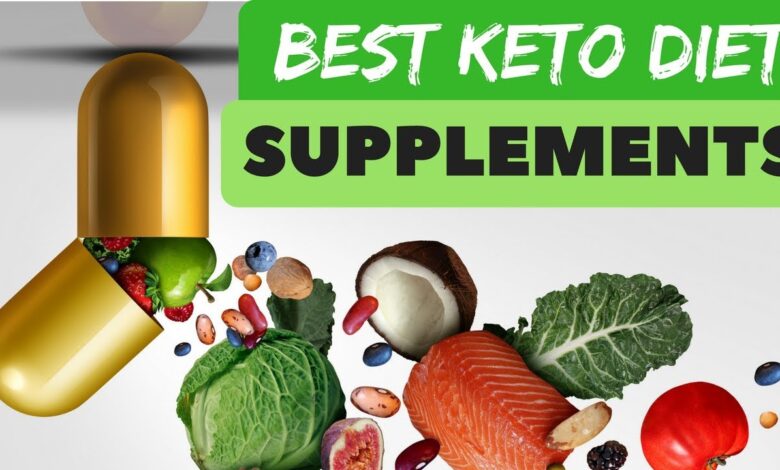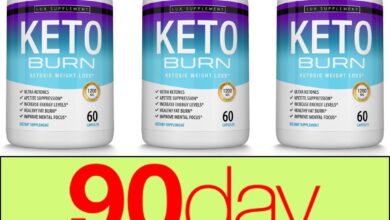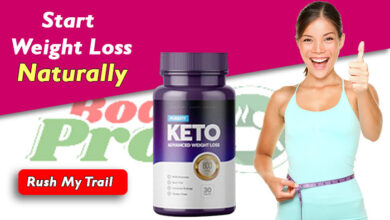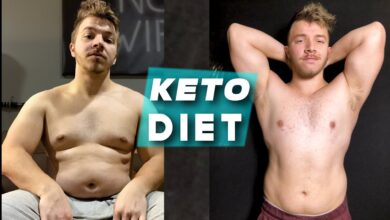
If you’re diving into the world of ketogenic (keto) dieting and looking to maximize your weight-loss results, you’ve likely come across a whole lineup of supplements claiming to accelerate fat-burn, boost metabolism and keep you in ketosis. But which ones truly deliver? Which are backed by science — and which are just clever marketing? In this deep dive we’ll explore the best keto supplements for weight loss — how they work, how to pick them, how to use them safely, and how they can work alongside your diet and lifestyle. Whether you’re in Africa, the US or Europe, this guide will be practical, conversational and filled with clear, actionable advice.
Why keto supplements matter in a weight-loss journey
When you embark on a keto diet — a low-carb, high-fat approach designed to shift your body into the fat-burning metabolic state known as ketosis — you’ll often face challenges: adapting your energy levels, managing hunger, sustaining ketosis, and maintaining muscle mass while losing fat. That’s where keto supplements come in. They’re not magic pills, but they can act as tools to support your body, especially during adaptation phases or when you hit a plateau. If you’re asking “Do I really need them?” the answer is: maybe not strictly, but they can give you an edge when used wisely. They help bridge gaps in your nutrition, support metabolic processes and help you stay consistent.
It’s important to remember: supplements support, they don’t replace the foundation. The foundation is your diet (low carb, moderate protein, good fat), exercise, hydration and sleep. Without those, even the best supplement won’t make a huge difference. But layered on well, they can help you overcome hurdles, improve performance, reduce side-effects of carb cut-down and help sustain weight-loss. Think of them like performance gear: you still need to run the race, but the right shoes might ahead.
How to evaluate a keto supplement
Selecting a supplement can feel overwhelming — there are so many brands, so many ingredient lists, so many marketing claims. Here’s how you can evaluate any keto supplement properly:
Ingredients & dosages
Look closely at what’s inside. Is there a clear list of active ingredients (e.g., BHB salts, MCT oil, electrolytes, green tea extract, L-carnitine)? Are the dosages shown? Are the forms recognized (e.g., magnesium citrate vs magnesium oxide)? Lack of clarity often means you’re paying more for marketing than for actual usable ingredient.
Evidence-based claims
Does the supplement claim “instant fat-burn” or “melt belly fat overnight”? That’s a red flag. Solid products will talk about supporting ketosis, improving energy, enhancing fat utilization — and ideally cite research or at least realistic claims. Also check for third-party testing, quality certifications, manufacturing standards (GMP), and transparent labelling.
Compatibility with your diet & health situation
Do you have any pre-existing conditions (e.g., kidney issues, liver issues, diabetes)? Are you pregnant, breastfeeding or under medication? Some supplements may interact. Also, if your diet already provides certain nutrients, the supplement may be redundant (and costly). Always check with a health professional if you’re unsure.
Price-versus-value
High CPC keywords like “weight loss supplements”, “fat burner keto”, “metabolism booster” reflect high commercial intent. You’ll find expensive supplements, but you need to ask: are you paying for proven value or branding? Compare ingredient lists, servings per container, and actual usable doses rather than just flashy names.
Top types of keto supplements for weight loss
Let’s break down the major categories of supplements that people commonly use when following a keto diet for weight loss. We’ll cover what each type does, when it might be helpful, and what to watch out for.
Exogenous ketones
These are supplements that provide ketone bodies (often β-hydroxybutyrate, BHB) externally rather than the body making them from your fats. When you’re in ketosis, your body produces its own ketones; exogenous versions give you a boost. They’re often used to help:
- Ease the “keto flu” or adaptation phase when carbs are cut dramatically.
- Improve mental clarity and energy when carbohydrate intake is very low.
- Potentially support fat-burn by elevating ketone levels and promoting fat as fuel.
However: exogenous ketones are not a free pass. If your diet still has high carbs, they won’t force fat loss. They’ll also cost more per serving, and some people find the taste or digestive side-effects (e.g., stomach upset) problematic. If you consider taking them, start with a low dose, stay hydrated, and monitor how your body reacts.
MCT oil (Medium Chain Triglycerides)
MCT oil is a popular supplement for ketoers. Medium-chain triglycerides are fats that are more rapidly absorbed and converted into ketones compared with long-chain fats. Benefits include:
- Faster energy production: You’ll feel less sluggish, especially when you reduce carbs.
- Appetite suppression: Some users report feeling more satiated, which helps with weight loss.
- Fat burning support: Because the body uses MCT more readily as fuel, they can help tip the balance towards fat utilization.
But, caution: starting MCT oil too quickly or at high doses may cause digestive discomfort (diarrhoea, cramping). Always ramp up slowly. Also, MCT oil is still calorie-dense — if you’re not tracking your fat intake, you might sneak in excess calories and stall your weight loss.
Electrolytes & minerals
When you go keto, your body dumps more water and sodium; insulin levels drop, and you lose a lot of water weight early on. This shift means electrolytes (sodium, potassium, magnesium, calcium) become critical. If you ignore them you might experience headaches, cramps, fatigue, or “keto flu” symptoms.
Taking a supplement (or ensuring your diet supports these minerals) helps you stay strong, active and on track. It doesn’t directly burn fat in the same way ketone boosters do, but by preventing performance drop-off, you maintain your workouts and daily activity, which is key for weight loss. Think of it like maintaining the car’s battery so your engine runs — you still need the engine (diet + exercise) but the battery (electrolytes) helps everything function.
Fat burners / metabolism boosters
There are supplements marketed as “fat burners” or “metabolism boosters” in the keto niche. These might include ingredients like green tea extract (EGCG), caffeine, yohimbine, L-carnitine, conjugated linoleic acid (CLA), and similar. On keto, they’re used to enhance energy turnover, increase calorie burn, and support fat mobilization.
However: these come with more caveats. They may raise heart rate, potentially cause jitters, and are not recommended for everyone (especially those with cardiovascular issues). Plus, they’re only effective if your diet and activity levels are on point. The best case is they give a small boost; the worst case, they distract from fundamentals.
Protein & amino acid supplements
Although keto emphasizes higher fat and moderate protein, many people inadvertently under-consume protein which can jeopardize muscle mass, reduce metabolic rate and slow weight loss. Supplementing with a good quality protein powder (especially low-carb ones) or branched-chain amino acids (BCAAs) can help maintain muscle, support recovery, and make weight loss more sustainable.
It’s not sexy to talk about protein in a “fat-burn” article, but honestly — preserving lean mass is critical. If you lose muscle, your metabolism drops and you’re more likely to regain weight later. So you might view these supplements less as magic fat-burn pills and more as insurance for your body composition.
Which ingredients are most evidence-backed?
When choosing supplements, you want ingredients that have human research backing — not just anecdote or marketing fluff. Here are several with stronger evidence:
β-hydroxybutyrate (BHB) salts
As part of exogenous ketones, BHB salts are perhaps the most used. Some studies show they elevate blood ketone levels, reduce appetite and help maintain energy, especially in low-carb states. They don’t automatically guarantee more fat loss, but they can support ketosis maintenance and reduce adaptation discomfort.
Medium Chain Triglycerides (MCTs)
MCTs have been shown to increase thermogenesis (calorie burn) and fat oxidation when compared to long-chain fats. Because they are rapidly converted into ketones, using them can help your body stay in or enter ketosis more smoothly. For weight loss, that can mean improved fat-utilization.
Green tea extract (EGCG) + caffeine
Combining green tea extract and caffeine appears in many “fat burner” supplements. The catechins (especially EGCG) and caffeine can modestly increase energy expenditure and fat oxidation. On top of keto’s natural fat-burning state, this can give a helpful boost. But again — modest.
L-Carnitine
L-Carnitine is involved in transporting long-chain fatty acids into the mitochondria (the “power plants” of cells) for fat burning. Some studies suggest it may assist with fat loss, especially when combined with exercise. On keto, when fat becomes the primary fuel, ensuring the fat transport mechanisms are supported is logical.
Electrolyte salts (sodium, potassium, magnesium)
While not “fat burning” per se, ensuring you have adequate electrolytes prevents performance drops, cramping, fatigue and adheres to sustainability of your diet. When you’re feeling strong and consistent, weight loss tends to be more effective and sustainable.
When and how to use keto supplements effectively
Having identified good ingredients and supplement categories, the next step is integration into your lifestyle for maximum benefit. This is not simply “take this and watch the kilos drop” — you’ll need smart timing, realistic expectations and sound habits.
Timing and context
- Use exogenous ketones or MCT oil most effectively when you’re transitioning into ketosis (first 1-3 weeks) or when you feel stalled. They can help ease fatigue or energy drops.
- Electrolytes are daily essentials once you’re on keto — especially if you’re training, sweating or in hot climates (like parts of Africa).
- Fat burners/metabolism boosters: only if your lifestyle supports them (consistent diet, exercise, sleep). Use earlier in your day; avoid late-day caffeine.
- Protein/amino acid supplements: ideally around workouts or as snack replacements when your regular meals fall short.
Dosage and escalation
Start low. With many supplements (especially MCT oil, fat burners), beginners may experience stomach upset, jitteriness or increased heart rate. Ramp up slowly — e.g., MCT oil: 1 teaspoon first day, then 1 tablespoon once tolerated. Exogenous ketones: follow label instructions. Fat burners: consider a half dose initially. Also track your response (how you feel, how your weight/measurements shift, energy levels, workout performance).
Diet & exercise remain core
No supplement will fix a poor diet or inactive lifestyle. If you’re still eating high-carb foods, skipping workouts, sleeping poorly and drinking little water — no supplement will rescue that. Supplements are like the performance upgrades on a car — but if your engine is mis-tuned or you’re not driving it, they won’t make you win a race. Stay consistent with your keto diet, ensure calorie and protein adequacy, train (resistance+cardio) and rest well.
Monitor and adjust
Track your metrics: body weight, body composition (if possible), waist measurements, energy levels, ketone levels (optional). If you’re not seeing expected progress after 4-6 weeks, review all variables: diet, sleep, stress, exercise, supplement quality. Sometimes the issue may be more lifestyle than supplement.
Potential risks, side-effects and when to stop
Supplements are not without risk, especially if misused, low-quality or inappropriate for your situation. Let’s examine what to watch out for.
Digestive issues
MCT oil (especially in large doses), exogenous ketones & fat burners can cause stomach cramps, diarrhoea or nausea — particularly if taken on an empty stomach or in high doses. Solution: start small, take with food, hydrate.
Electrolyte imbalance
If you ignore electrolyte intake and only rely on “fat burners”, you may experience muscle cramps, arrhythmias, or more serious issues. Conversely, too much sodium might affect blood pressure if you’re sensitive.
Interaction with medications or health conditions
Fat burners (with stimulants) may not be safe if you have hypertension, arrhythmia, thyroid disorders or are pregnant/breastfeeding. Always consult a health professional if you have underlying conditions or are on medications.
False promises and wasted money
Be skeptical of claims like “lose 10 kg in a week” or “fat melts while you sleep”. These are unrealistic, and if you buy a supplement purely based on marketing hype, you may be disappointed — and worse, neglect the fundamentals. Evaluate quality, manufacturer reputation and science.
When to stop
If you experience persistent side-effects (heart palpitations, insomnia, severe GI upset), stop the supplement. Also, if your progress stalls and you’re just relying on the supplement without reviewing diet/exercise, pause and reassess. Supplements should not become a crutch or excuse for skipping core habits.
How much weight-loss improvement can you expect?
Realistic expectations are vital. While the idea of “supplements accelerate fat-loss” is appealing, the actual gain from high-quality supplements in a well-managed keto diet might be modest — but meaningful. For example, if your baseline plan (diet + exercise) is causing you to lose 0.5-1 kg per week, a supplement might increase that by perhaps 0.1-0.3 kg per week, or help you sustain that rate longer without burnout.
Also note: weight loss isn’t linear. You’ll have weeks where the scale moves rapidly, and weeks where you don’t. What matters is consistency over months, preserving lean mass, and keeping fat off long-term. The real value of a good supplement might be in helping you push through plateaus, maintain energy, sustain muscle, and stay compliant — all of which compound over time.
Choosing reputable supplement brands
With so many brands globally (and shipping to Africa, US and Europe), how do you pick one you can trust?
Certifications & third-party testing
Look for brands that mention GMP (Good Manufacturing Practice), NSF certification or third-party lab testing. This gives assurance that what’s on the label is what’s inside the bottle.
Transparent ingredient lists
Avoid “proprietary blends” that hide dosages. A high-quality supplement will show exact mg amounts, and ideally explain why they used the dose.
Brand reputation & reviews
Search for independent reviews, look for any safety complaints, check if the brand provides research references. Also check shipping and regulatory compliance in your region (Africa / Ghana / US / Europe) — some supplements may be restricted or taxed.
Price-vs-value ratio
A low price can mean low dosage or cut corners. A very high price doesn’t guarantee fantastic results either. Compare with market standards, evaluate cost per usable serving, and ensure you’re not paying for flashy packaging.
Customer service & returns policy
Good brands will have a clear refund policy, responsive customer support, and clear shipping info (especially if you’re outside major markets). If you’re ordering into Ghana or West Africa, check for shipping customs, import duties, and whether they ship internationally.
Supplement stacking strategy: what to combine and when
Stacking means using more than one supplement together (e.g., MCT oil + electrolytes + exogenous ketones). Here’s how to stack smartly for weight loss on keto.
Adaptation phase (first 0-4 weeks)
During your first weeks of keto, your body is adjusting. You might feel fatigued, mentally foggy or have cravings. A sensible stack here:
- Electrolytes daily (sodium, potassium, magnesium)
- MCT oil (small dose with breakfast)
- If you feel very tired or struggling with adaptation, a mild dose of exogenous ketones after lunch.
Active weight-loss phase (weeks 4-12)
Once you’re stable in ketosis and losing weight consistently, use supplements to enhance performance and avoid plateaus:
- Continue electrolytes
- Use MCT oil maybe before workouts or as part of a snack
- If workouts are stalling, add a fat burner with green tea extract + caffeine, but only if you tolerate stimulants
- Ensure protein supplement around workouts or as needed to hit protein targets.
Maintenance phase (after reaching goal)
Once you reach your target weight and transition into maintenance, your supplement needs may reduce:
- Maintain electrolytes (especially if you’re still low-carb)
- Use MCT oil as desired for energy or ketone support
- Skip fat burners unless you have specific goals (e.g., body re-composition)
- Continue protein supplementation if needed to maintain lean mass.
Keto diet plus real-world considerations (for Africa, US & Europe)
Let’s bring in practical context because your environment, access, cost and cultural food differences matter a lot.
Availability and cost
In the US and Europe, supplement options are abundant, and shipping is often easier. In Africa (including Ghana), shipping costs, customs, availability and local regional stock can be a challenge. You might pay more or wait longer. So: always check shipping & import costs, and consider local brands or distributors when possible.
Food culture and adaptation
Whether you’re in the US, Europe or Africa, your typical diet may contain more carbs (rice, maize, plantain, bread). Going keto may require a bigger shift. Supplements can help smooth that transition (e.g., MCT oil for quick energy, electrolytes to handle water loss). But the diet shift must be feasible: choose low-carb foods from your local cuisine (e.g., leafy greens, eggs, fish, nuts, avocados) and integrate supplements around that.
Infrastructure & lifestyle
In some regions you may face unreliable power (impacting freezer foods, meat storage), or limited gym access, or hot climate affecting hydration and electrolyte loss. Supplements like electrolytes become even more relevant. Also, if you travel frequently between regions (say Ghana to Europe or US), pick supplements that are legal and importable in all regions to avoid customs hassles.
Cultural acceptance & myth-busting
In many countries, the idea of “fat-burning pills” is heavily marketed and misunderstood. It’s important to set realistic expectations: supplements support, they don’t replace. Be ready to educate friends/family or your social circle that your approach is not a fad, but a scientifically-grounded strategy. Use analogies: “The supplement is like a performance shoe, but the race (diet + exercise) still depends on me.”
Common mistakes people make with keto supplements
Avoiding pitfalls can save you money, frustration and time. Here are mistakes I see often — and how you can sidestep them.
Mistake: Expecting instant results
Some people buy a supplement and expect rapid weight loss regardless of diet. That rarely happens. Supplements are incremental boosters. The obsession should be with consistency over time, not magic overnight.
H3 – Mistake: Ignoring diet & exercise
If you rely solely on supplements and let your diet creep up in carbs or calories, you’ll likely stall. Supplements cannot undo poor dietary choices.
Mistake: Taking too many stimulants
Stacking multiple fat-burners with caffeine, yohimbine, etc can backfire: poor sleep, increased stress hormones, burnout. Sleep and recovery are actually more important for fat loss than more stimulants.
Mistake: Skipping electrolytes & hydration
You may be focused on fat burners and ketone boosters, but neglecting hydration and minerals can cause fatigue, cramps, or even stop your workouts — undermining your weight loss.
Mistake: Sticking with one supplement brand blindly
Just because you bought a brand doesn’t mean it’s optimal for your phase, budget or region. Re-evaluate every 8-12 weeks: Are you still getting value? Has your diet/exercise changed? Do you still need the same stack?
Realistic sample stack for weight loss on keto
Here’s an example of how one might structure a supplement stack during the active weight loss phase (assuming no contraindications). Adjust doses and timing based on your tolerance, region and budget.
- Morning: Electrolyte drink (sodium + potassium + magnesium) with breakfast → MCT oil added to coffee or smoothie.
- Pre-workout (if training): ½ dose fat burner (e.g., green tea extract + caffeine) or exogenous ketone depending on how you feel.
- Post-workout: Protein shake (low-carb) or BCAAs, plus another electrolyte top-up if you sweat a lot.
- Evening: Ensure adequate magnesium (often part of the electrolyte mix) to support sleep; avoid stimulants late of the day.
- Daily: Monitor how you feel, your energy levels, your workout performance, your weight/measurements. After 4-6 weeks, evaluate and adjust: reduce or pause fat burner if you’re in maintenance, keep electrolytes daily.
When to call in a professional
Supplements can be helpful, but they’re not appropriate for everyone. Consider consulting a registered dietitian, nutritionist or physician if you:
- Have chronic disease (diabetes, thyroid, kidney/liver issues, heart conditions).
- Are pregnant, breastfeeding or planning pregnancy.
- Are under 18 or over 65 (special nutritional needs).
- Are taking other medications that might interact with stimulants, ketone salts or electrolytes.
- Experience adverse effects (persistent gastrointestinal problems, irregular heart rate, insomnia) from supplements.
- Are unsure about the quality or authenticity of the product you plan to use (especially if importing to Ghana or other African countries).
Getting professional input helps you personalize: what works for one person might not suit another. Your metabolism, genetic profile, lifestyle and goals all matter.
Summary of best keto supplement picks & their roles
Let’s summarize:
- Exogenous ketones (BHB salts): Help ease adaptation, elevate ketones, support mental clarity and energy.
- MCT oil: Rapid fat fuel, supports ketosis, appetite control.
- Electrolytes/minerals: Critical for hydration, energy, performance, especially early or in hot climates.
- Fat-burner/metabolism booster: Additional boost if diet & exercise are solid, but not essential.
- Protein/amino acid support: For preserving lean mass, aiding recovery and sustainable weight-loss.
Each has a specific role, and when combined smartly with diet and exercise, they can optimize your weight-loss journey on keto. But none of them replace the core: your low-carb diet, consistent physical activity and healthy habits.
Conclusion
If you’re committed to a keto diet for weight loss, the right supplements can make the difference between struggling and thriving. They can help you transition more smoothly, maintain energy, protect muscle and push through plateaus. Just remember: they’re tools, not magic bullets. Focus on the fundamentals — clean low-carb nutrition, adequate protein, fat intake aligned with your goals, regular resistance and cardio training, adequate sleep and hydration — then layer in the supplements that fit your phase and budget.
Be smart: evaluate products carefully, avoid hype, monitor your results and adjust as you go. Whether you’re in the US, Europe or Africa, these principles hold true. Done well, you’ll not just lose weight — you’ll gain control, confidence and a sustainable lifestyle.
Read Also 7 Best Keto Supplements for Weight Loss and Energy: Boost Fat Burn & Vitality
FAQs
1. Do I need keto supplements to lose weight on a keto diet?
Answer: Not strictly. You can lose weight on a keto diet without any supplements if you get your diet, exercise and lifestyle right. Supplements simply provide support — they help with energy, adaptation, hunger, plateaus — but they don’t replace the fundamentals.
2. Which supplement should I start with first?
Answer: The best starting point is electrolytes/minerals. Because of the fluid and mineral shifts on keto, you’re very likely to benefit from correcting any shortfall. After that, MCT oil is a solid addition. Exogenous ketones or fat-burners may come later once you’re stable.
3. Are fat-burner supplements safe for everyone on keto?
Answer: No. Fat-burners often contain stimulants (caffeine, yohimbine) and may increase heart rate, blood pressure or cause sleep disruption. If you have heart conditions, high blood pressure, thyroid issues, are pregnant, or sensitive to caffeine, they may not be suitable. Always consult a professional.
4. How long should I use keto supplements?
Answer: It depends on your goals and phase. A typical timeline: adaptation phase (0-4 weeks) may require more support; active weight-loss phase (4-12+ weeks) you might use a fuller stack; once in maintenance you might scale back to just electrolytes or occasional MCT oil. Re-evaluate every 8-12 weeks.
5. How can I tell if a supplement is working for me?
Answer: Track measurable outcomes: body weight, waist circumference, body composition if possible, workout performance, energy levels, hunger levels. Compare your progress with and without the supplement. If you’re not seeing improvement after a reasonable period (e.g., 4-6 weeks), reassess the product, dosage or whether your core diet/exercise needs adjusting first.




